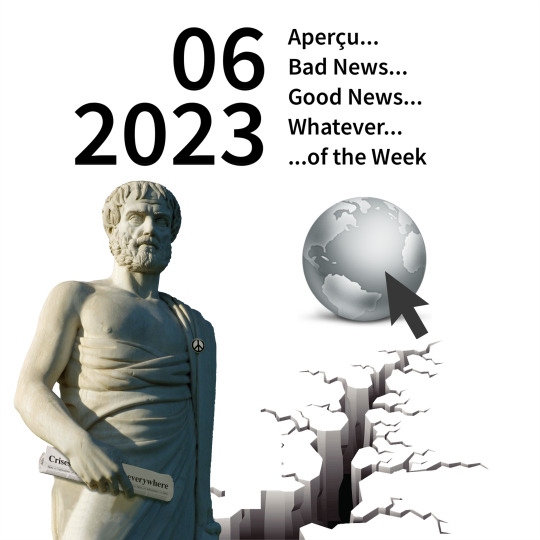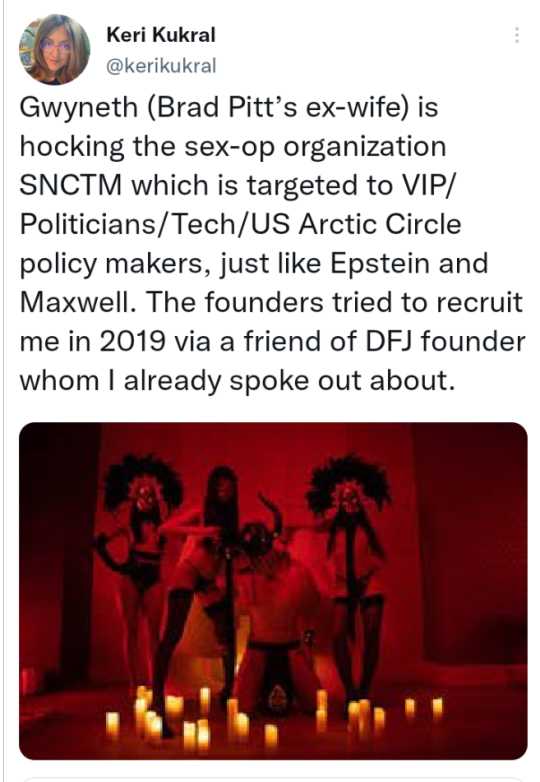#crypto russia
Explore tagged Tumblr posts
Text
Every internet fight is a speech fight

THIS WEEKEND (November 8-10), I'll be in TUCSON, AZ: I'm the GUEST OF HONOR at the TUSCON SCIENCE FICTION CONVENTION.

My latest Locus Magazine column is "Hard (Sovereignty) Cases Make Bad (Internet) Law," an attempt to cut through the knots we tie ourselves in when speech and national sovereignty collide online:
https://locusmag.com/2024/11/cory-doctorow-hard-sovereignty-cases-make-bad-internet-law/
This happens all the time. Indeed, the precipitating incident for my writing this column was someone commenting on the short-lived Brazilian court order blocking Twitter, opining that this was purely a matter of national sovereignty, with no speech dimension.
This is just profoundly wrong. Of course any rules about blocking a communications medium will have a free-speech dimension – how could it not? And of course any dispute relating to globe-spanning medium will have a national sovereignty dimension.
How could it not?
So if every internet fight is a speech fight and a sovereignty fight, which side should we root for? Here's my proposal: we should root for human rights.
In 2013, Edward Snowden revealed that the US government was illegally wiretapping the whole world. They were able to do this because the world is dominated by US-based tech giants and they shipped all their data stateside for processing. These tech giants secretly colluded with the NSA to help them effect this illegal surveillance (the "Prism" program) – and then the NSA stabbed them in the back by running another program ("Upstream") where they spied on the tech giants without their knowledge.
After the Snowden revelations, countries around the world enacted "data localization" rules that required any company doing business within their borders to keep their residents' data on domestic servers. Obviously, this has a human rights dimension: keeping your people's data out of the hands of US spy agencies is an important way to defend their privacy rights. which are crucial to their speech rights (you can't speak freely if you're being spied on).
So when the EU, a largely democratic bloc, enacted data localization rules, they were harnessing national soveriegnty in service to human rights.
But the EU isn't the only place that enacted data-localization rules. Russia did the same thing. Once again, there's a strong national sovereignty case for doing this. Even in the 2010s, the US and Russia were hostile toward one another, and that hostility has only ramped up since. Russia didn't want its data stored on NSA-accessible servers for the same reason the USA wouldn't want all its' people's data stored in GRU-accessible servers.
But Russia has a significantly poorer human rights record than either the EU or the USA (note that none of these are paragons of respect for human rights). Russia's data-localization policy was motivated by a combination of legitimate national sovereignty concerns and the illegitimate desire to conduct domestic surveillance in order to identify and harass, jail, torture and murder dissidents.
When you put it this way, it's obvious that national sovereignty is important, but not as important as human rights, and when they come into conflict, we should side with human rights over sovereignty.
Some more examples: Thailand's lesse majeste rules prohibit criticism of their corrupt monarchy. Foreigners who help Thai people circumvent blocks on reportage of royal corruption are violating Thailand's national sovereignty, but they're upholding human rights:
https://www.vox.com/2020/1/24/21075149/king-thailand-maha-vajiralongkorn-facebook-video-tattoos
Saudi law prohibits criticism of the royal family; when foreigners help Saudi women's rights activists evade these prohibitions, we violate Saudi sovereignty, but uphold human rights:
https://www.bbc.com/news/world-middle-east-55467414
In other words, "sovereignty, yes; but human rights even moreso."
Which brings me back to the precipitating incidents for the Locus column: the arrest of billionaire Telegram owner Pavel Durov in France, and the blocking of billionaire Elon Musk's Twitter in Brazil.
How do we make sense of these? Let's start with Durov. We still don't know exactly why the French government arrested him (legal systems descended from the Napoleonic Code are weird). But the arrest was at least partially motivated by a demand that Telegram conform with a French law requiring businesses to have a domestic agent to receive and act on takedown demands.
Not every takedown demand is good. When a lawyer for the Sackler family demanded that I take down criticism of his mass-murdering clients, that was illegitimate. But there is such a thing as a legitimate takedown: leaked financial information, child sex abuse material, nonconsensual pornography, true threats, etc, are all legitimate targets for takedown orders. Of course, it's not that simple. Even if we broadly agree that this stuff shouldn't be online, we don't necessarily agree whether something fits into one of these categories.
This is true even in categories with the brightest lines, like child sex abuse material:
https://www.theguardian.com/technology/2016/sep/09/facebook-reinstates-napalm-girl-photo
And the other categories are far blurrier, like doxing:
https://www.kenklippenstein.com/p/trump-camp-worked-with-musks-x-to
But just because not every takedown is a just one, it doesn't follow that every takedown is unjust. The idea that companies should have domestic agents in the countries where they operate isn't necessarily oppressive. If people who sell hamburgers from a street-corner have to register a designated contact with a regulator, why not someone who operates a telecoms network with 900m global users?
Of course, requirements to have a domestic contact can also be used as a prelude to human rights abuses. Countries that insist on a domestic rep are also implicitly demanding that the company place one of its employees or agents within reach of its police-force.
Just as data localization can be a way to improve human rights (by keeping data out of the hands of another country's lawless spy agencies) or to erode them (by keeping data within reach of your own country's lawless spy agencies), so can a requirement for a local agent be a way to preserve the rule of law (by establishing a conduit for legitimate takedowns) or a way to subvert it (by giving the government hostages they can use as leverage against companies who stick up for their users' rights).
In the case of Durov and Telegram, these issues are especially muddy. Telegram bills itself as an encrypted messaging app, but that's only sort of true. Telegram does not encrypt its group-chats, and even the encryption in its person-to-person messaging facility is hard to use and of dubious quality.
This is relevant because France – among many other governments – has waged a decades-long war against encrypted messaging, which is a wholly illegitimate goal. There is no way to make an encrypted messaging tool that works against bad guys (identity thieves, stalkers, corporate and foreign spies) but not against good guys (cops with legitimate warrants). Any effort to weaken end-to-end encrypted messaging creates broad, significant danger for every user of the affected service, all over the world. What's more, bans on end-to-end encrypted messaging tools can't stand on their own – they also have to include blocks of much of the useful internet, mandatory spyware on computers and mobile devices, and even more app-store-like control over which software you can install:
https://pluralistic.net/2023/03/05/theyre-still-trying-to-ban-cryptography/
So when the French state seizes Durov's person and demands that he establish the (pretty reasonable) minimum national presence needed to coordinate takedown requests, it can seem like this is a case where national sovereignty and human rights are broadly in accord.
But when you consider that Durov operates a (nominally) encrypted messaging tool that bears some resemblance to the kinds of messaging tools the French state has been trying to sabotage for decades, and continues to rail against, the human rights picture gets rather dim.
That is only slightly mitigated by the fact that Telegram's encryption is suspect, difficult to use, and not applied to the vast majority of the communications it serves. So where do we net out on this? In the Locus column, I sum things up this way:
Telegram should have a mechanism to comply with lawful takedown orders; and
those orders should respect human rights and the rule of law; and
Telegram should not backdoor its encryption, even if
the sovereign French state orders it to do so.
Sovereignty, sure, but human rights even moreso.
What about Musk? As with Durov in France, the Brazilian government demanded that Musk appoint a Brazilian representative to handle official takedown requests. Despite a recent bout of democratic backsliding under the previous regime, Brazil's current government is broadly favorable to human rights. There's no indication that Brazil would use an in-country representative as a hostage, and there's nothing intrinsically wrong with requiring foreign firms doing business in your country to have domestic representatives.
Musk's response was typical: a lawless, arrogant attack on the judge who issued the blocking order, including thinly veiled incitements to violence.
The Brazilian state's response was multi-pronged. There was a national blocking order, and a threat to penalize Brazilians who used VPNs to circumvent the block. Both measures have obvious human rights implications. For one thing, the vast majority of Brazilians who use Twitter are engaged in the legitimate exercise of speech, and they were collateral damage in the dispute between Musk and Brazil.
More serious is the prohibition on VPNs, which represents a broad attack on privacy-enhancing technology with implications far beyond the Twitter matter. Worse still, a VPN ban can only be enforced with extremely invasive network surveillance and blocking orders to app stores and ISPs to restrict access to VPN tools. This is wholly disproportionate and illegitimate.
But that wasn't the only tactic the Brazilian state used. Brazilian corporate law is markedly different from US law, with fewer protections for limited liability for business owners. The Brazilian state claimed the right to fine Musk's other companies for Twitter's failure to comply with orders to nominate a domestic representative. Faced with fines against Spacex and Tesla, Musk caved.
In other words, Brazil had a legitimate national sovereignty interest in ordering Twitter to nominate a domestic agent, and they used a mix of somewhat illegitimate tactics (blocking orders), extremely illegitimate tactics (threats against VPN users) and totally legitimate tactics (fining Musk's other companies) to achieve these goals.
As I put it in the column:
Twitter should have a mechanism to comply with lawful takedown orders; and
those orders should respect human rights and the rule of law; and
banning Twitter is bad for the free speech rights of Twitter users in Brazil; and
banning VPNs is bad for all Brazilian internet users; and
it’s hard to see how a Twitter ban will be effective without bans on VPNs.
There's no such thing as an internet policy fight that isn't about national sovereignty and speech, and when the two collide, we should side with human rights over sovereignty. Sovereignty isn't a good unto itself – it's only a good to the extent that is used to promote human rights.
In other words: "Sovereignty, sure, but human rights even moreso."

If you'd like an essay-formatted version of this post to read or share, here's a link to it on pluralistic.net, my surveillance-free, ad-free, tracker-free blog:
https://pluralistic.net/2024/11/06/brazilian-blowout/#sovereignty-sure-but-human-rights-even-moreso

Image: © Tomas Castelazo, www.tomascastelazo.com (modified) https://commons.wikimedia.org/wiki/File:Border_Wall_at_Tijuana_and_San_Diego_Border.jpg
CC BY-SA 4.0 https://creativecommons.org/licenses/by-sa/4.0/
#speech#free speech#free expression#crypto wars#national sovereignty#elon musk#twitter#blocking orders#pavel durov#telegram#lawful interception#snowden#data localization#russia#brazil#france#cybercrime treaty#bernstein#eff#malcolm turnbull#chat control
104 notes
·
View notes
Text
I have been waiting for this day for a long time. After months of hard work and endless learning, I have finally achieved my certification in blockchain technology. I completed a challenging training program that took me more than two years. I didn't tell anyone about this until now.
I am so proud of myself for reaching this goal. It was not an easy journey, but I never gave up. I want to thank my family and friends for their support and encouragement.
You are never too old to learn something new.
CERTIFIED CRYPTOCURRENCY EXPERT (C.C.E)
Certified Cryptocurrency Trader
I am thrilled to be part of this community!
Many people think that investing requires a lot of money, but that's not true. You can start building a solid portfolio with just a few hundred or thousand dollars. The secret to wealth is not saving, but investing! The sooner you start saving and investing, the more money you will have when you retire.
Are you interested in crypto?
Do you have any digital coins?
Contact me to find out how you can make money with crypto. The first step to success is to take action. Don't miss this chance to join something amazing.


#crypto#lgbt#usa politics#russia#nft#gay#forextrader#israel#ww3#lebanon#btc#coins#investing#san francisco#trump#climate change#trending#bybit#ethereum#news#missile#iron dome#football#music#bitcoin#lesbian#video games#iphone#samsung#iran
2 notes
·
View notes
Text

2023 / 06
Aperçu of the Week:
"We wanted the best, but it came as usual."
(Viktor Chernomyrdin, former Russian prime minister, in 1993)
Bad News of the Week:
The image of the "People's Democratic Republic" of North Korea is often described as Stone Age communism. While the majority of the population suffers from extreme poverty and, in some cases, famine, Kim Yong Un stages himself as a monarch and operates a strange cult of nuclear weapons and long-range missiles, which he sees as life insurance for his own despotic regime. All of this is done under the eyes of China, a protective power that is difficult to understand, and in distinction from the economically successful brother nation of South Korea.
For a long time, North Korea existed like a country on another planet. Hardly any information penetrated to the outside or the inside, the communicative isolation seemed perfect, the media control total. This still works internally, but in recent months it is the World Wide Web, of all places, on whose map the country is no longer a blank spot. On the one hand, North Korea operates extremely successful hacker cohorts who, in addition to various espionage and disinformation campaigns, also managed to collect at least $1.2 billion in cryptocurrency through online fraud and data extortion. In other words, a concretely lucrative business that flushes foreign currency into the state coffers.
What is unclear, however, is the objective of what is currently the second notable North Korean Internet phenomenon: an apparently broad-based social media offensive. In a series of channels, which according to CNN are new and have been astonishingly successful in a short time, the country is staging itself as a pleasant home for seemingly normal teenagers. Who speak perfect English with a British accent. Who, for example, enjoy popsicles and love to read Harry Potter. Only the former is hardly available and the latter is even officially banned. Why is this done? Good question.
The videos "look like a well-prepared play" scripted by the North Korean government, said Park Seong-cheol, a researcher at the Database Centre for North Korean Human Rights. The scenes shown from the alleged everyday life of youngsters are not completely fake, but staged. For example, there is a water park, a movie theater and an amusement park in Pyongyang. Only these facilities are reserved for an elite class of party officials, military officers and government employees. Like the Internet access these strange influencers use - just like the smartphones that aren't actually available. What's the point when, according to the CIA fact book, only 26% of the population even has electricity? It would be nice if the North Korean tourist office, which wants to open the country's borders to international tourism, were behind this.
More likely, however, it is a red herring. With which the regime wants to influence the current narrative: North Korea is not an isolated country that could attack its neighbors and the United States with nuclear weapons. But rather an ordinary East Asian country where ordinary people like you and me live ordinary lives. Combined with the recent spate of missile launch tests, the latest expansion of the Nyŏngbyŏn nuclear facility documented with satellite imagery, and a new solid-fuel intercontinental ballistic missile (ICBM) unveiled just last Wednesday at the 75th anniversary of the founding of the armed forces, this leaves a queasy feeling.
Good News of the Week:
Probably the death toll of 28,000 from the earthquake in the Turkish-Syrian border region is out of date by the time I post this. The worst series of quakes since scientific records began has devastated an area where nearly 20 million people live. And as events unfold, a whole series of negative findings are coming to light.
The Turkish government is not implementing the regulations that actually apply to buildings in the latently earthquake-prone region. Neither Syria's ruler Bashar al-Assad nor the rebels in the north of the country are allowing solid disaster relief by foreign forces. Enemy nations cannot be stopped from attacking each other even in this situation. Even in the Near East, there are sub-zero temperatures at this time of year. And the Kurds remain constantly the biggest loosers of them all anyway.
Fortunately, many humanitarian highlights are also showing up in the face of adversity. For example, even Sweden, reviled by Erdogan, is sending aid workers to eastern Anatolia. So is the beleaguered Ukraine, which surely would have been admitted a different set of priorities. And those that don't have appropriately equipped aid workers, like the United Arab Emirates, are opening their wallets. And every day there are - still! - improbable miracles, such as the rescue of a heavily pregnant woman who was rescued yesterday after 115 hours under rubble.
What somehow makes one optimistic despite the terrible circumstances is humanity. When people stand by each other in times of need, even though the religion they believe in actually dictates enmity. When official requirements are suspended in order to allow family members who have become homeless to travel to their relatives in Germany, for example. Or when the international community thinks not only about the current rescue, but also about reconstruction afterwards - the EU has already announced a donor conference for those affected.
Even the self-proclaimed crown of creation, which likes to define itself in terms of greed, resentment, jealousy or hatred, is capable of empathy. It's nice that the term "humanity" still has a positive connotation. Even though we so often seem to go out of our way to change that. The heart is probably more than just a blood-pumping muscle after all. And conscience more than a transmission in the synapses of the brain.
Personal happy moment of the week:
I broke a bottle of red wine while shopping the other day. And moistened various purchases in the carrier bag. I noticed most of it and was able to clean and dry it. That the red wine also flowed into a box of cigarillos, I did not even notice. Not until I wanted to smoke one and had a damp, soft stem in my hand. So I put the box open on the heater in the office. And discovered two pleasant side effects of my mishap: the smell of red wine and tobacco at work has an comfortable calming effect. And the taste of the cigarillos gets a pleasant additional flavor. From that perspective, I was able to profitably recycle some of the spilled red wine.
I couldn't care less...
...whether the former head of the Office for the Protection of the Constitution, Hans-Georg Maaßen, who is increasingly conspicuous for his racist and conspiracy-theory tones, can be officially expelled from the conservative CDU. Or whether the high good of freedom of speech also protects him within the party from accountability for his unspeakable statements. The fact that an obviously extreme right-winger could rise as a political official to become the head of the most important authority for upholding the state of lawfulness, of all things, weighs considerably more heavily and calls for more consequences than which membership card he carries around with him.
As I write this...
...I'm drinking a beer not even five hours after I got up today. A tough week in many ways takes its toll. And I tackle the challenge of relaxing Bavarian style.
Post Scriptum
In the German capital Berlin, the House of Representatives will be newly elected today - as a repeat election. This is because the regional election that took place in the fall of 2021 parallel to the federal election was declared invalid by the Administrative Court due to numerous mishaps - from ballots running hout to polling stations closing too late. Realpolitically less relevant, since no result of the election would change e.g. the majority conditions in the Bundesrat, is a look on Berlin nevertheless interesting. On the one hand, out of sarcasm, since this debacle also fits perfectly with the prejudice that simply nothing works in this city. On the other hand, out of curiosity, since in the end every conceivable party constellation is indeed possible. The extent of my tendency toward the former will depend on the first projection in less than an hour on the latter.
#thoughts#aperçu#good news#bad news#news of the week#happy moments#politics#wanting the best#russia#north korea#stone age#communism#Kim Yong Un#social media#crypto currency#online fraud#nuclear weapons#earthquake#turkey#syria#red wine#cigarillo#constitution#bavarian#berlin#election#humanity#germany#help#cdu
7 notes
·
View notes
Text
Mining investment in Qatar
Hi there, thank you for your interest in mining investment in Qatar. Qatar is a country with abundant mining potential, as it is home to some of the world's largest gas and oil reserves. The Qatar Mining Company (QM) is the government-owned company responsible for overseeing mining operations in the country. QM has several investment programs that can provide potential investors with the opportunity to explore Qatar's mining potential. Additionally, Qatar's Ministry of Energy and Industry provides information about the sector and offers assistance to those interested in investing in mining operations in the country. We hope this information has been helpful in providing you with an overview of the opportunities available for mining investment in Qatar. Thank you for your inquiry.

#Mining investment in Qatar#best way to investment Money in Qatar#Crypto investment in Qatar#Crypto currency in Qatar#best crypto exchange in Qatar#crypto market in Saudi Qatar#crypto currency trading strategies#in Qatar#Mining in Qatar#Best Future of crypto currency in Qatar#Crypto investment benefits in Qatar#Crypto currency in Russia#Crypto investment in Russia#Mining investment in Russia#best way to investment Money in Russia#best crypto exchange in Russia#crypto market in Saudi Russia#inRussia#Mining in Russia#Best Future of crypto currency in Russia#Crypto investment benefits in Russia
2 notes
·
View notes
Text









#NFTs#Crypto#Silicon Valley#Sex Ops Scams#Rothstein#Roger Stone#Epstein#Weinstein#She Said#Neri Oxman#MIT Mefia Lab#Mossad#Russia#DFJ#SNCTM#Masha Drokova#Kevin Hart#Jimmy Fallon#Ghislaine Maxwell#French Intelligence#Cannes#gwenyth paltrow#Adidas#Serena Williams#Alexis Ohanian#Bored Ape NFT Scandal
2 notes
·
View notes
Text
Day 49 of the #LiveGood90 Challenge! 🌟
Feeling unstoppable! 💥 We’re just past the halfway mark, and the energy, motivation, and results are REAL. Every step I take on this journey brings me closer to my best self – stronger, healthier, and more focused!
🌿 Why I’m Loving LiveGood:
Scientifically backed supplements that fuel my daily grind
Real support from an inspiring community
Noticeable changes in my energy and focus levels
Ready to level up your health and see the benefits yourself? Check it out here: https://livegoodtour.com/JAGANNAYAK369
Join me, let’s crush the rest of these 90 days together! 🚀
#LiveGoodChallenge #90DayChallenge #Day49 #FeelYourBest #Unstoppable #Motivation #WellnessJourney #FitnessTransformation

#artists on tumblr#black history#black literature#black love#black tumblr#english literature#home#lamborghini#black art#luxury car#din djarin#dbz#dm me#why#novak djokovic#sb crypto guru news#the show live on tour#fire emblem#dbh#jibaku shounen hanako kun#ed but not ed sheeran#ekko#shopping#donate if you can#idk what im doing#shitpost#online business directory#runway#cookie run#russia
0 notes
Text
Binance executive leaves Nigeria after spending eight months in unlawful detention
After eight months in detention, Binance Holdings Limited’s executive, Tigran Gambaryan, has left Nigeria to reunite with his family in the U.S. His wife, Yuki Gambaryan, disclosed this in a statement on Thursday, a day after Mr Gambaryan left Kuje prison following the withdrawal of charges against him by the Nigerian government. “Today, American citizen Tigran Gambaryan left Nigeria to return…
0 notes
Text

Discover the key differences between Web2 and Web3, exploring the shift from centralized control to decentralized networks. This in-depth analysis covers user control, data ownership, privacy, and how Web3 is reshaping the future of the internet. Learn more—read our recent blog!
Read more : https://bit.ly/3NeGSfO
#startup#business#branding#business growth#web3#web 3.0#web 2.0#web3development#web3gaming#crypto market#nft#crypto#defi#web3community#ethereum#web3 development company#india#usa#usa news#england#london#uae#uaebusiness#russia
1 note
·
View note
Text
Ready to supercharge your Bet365 Clone Script? Discover top revenue-generating techniques that can elevate your betting platform! From diversifying your betting options to leveraging partnerships and offering attractive promotions, our new blog provides actionable insights to boost your profits. Don’t miss out—take your betting business to new heights!
👉 Read more: https://bit.ly/3Bnant1
#betting#crypto#casinogames#sports betting#bet365#bet365 clone software#business#cricket betting#software#startup#sportsbook#white label#sports betting software development#gambling#best#buy#india#usa#england#london#uae#russia#sports#games#gaming#cricket betting software development#fantasy sports app#app development
0 notes
Text
Russia, Trade Partners Build Alternative Payments Systems Circumventing US Dollar
New Currencies And Financial Systems Are being Built To Circumvent Western Economic Pressure on Moscow.

© Sputnik/Alexandr Demyanchuk/Go to the Mediabank
Russia and various trade partners are working to strengthen alternative currencies and payments systems, reducing global reliance on the US dollar and Western-based financial networks.
“Moscow keeps finding ways to keep the country's economy going,” writes business reporter Huileng Tan, describing Russia’s response to Western sanctions imposed after the launch of its special military operation against Ukraine in 2022. “Russia's trade partners, too, are looking for ways to continue doing business with the country via alternative systems to rival the Western-led, US dollar-dominated global financial order.”
Moscow has been adapting to Western financial pressure since 2014 when trade restrictions were imposed after Russia's reunification with Crimea.
“There are risks in using the global financial networks,” said Russian central bank governor Elvira Nabiullina in 2018. “Therefore, since back in 2014 we have been developing our own systems.”
Western economic aggression intensified in 2022, causing Moscow to increasingly make use of its System for Transfer of Financial Messages (SPFS). The financial messaging system is used in place of SWIFT, the Western system that has traditionally served as the de-facto global standard. SPFS is reportedly used by 556 organizations in 20 countries, with foreign organizations’ use of the system more than doubling after 2022.

Euro's Share in SWIFT Transactions Hits Historic Low in March! The share of the euro in international payments via SWIFT in March dropped to an all-time low of 21.93%, according to the global payment system's data. Photo: © iStock/Gaffera
The proportion of global transactions involving Europe's common currency fell by 1.32 percentage points month-on-month.
Meanwhile, the US dollar strengthened its position last month, gaining 0.81 percentage points from February to reach 47.37%, which is its highest level since December 2023, the data showed.
Russia has also made efforts to integrate its financial system with that of Iran, with Moscow’s Mir card payment platform now working with Tehran’s Shetab system.
Meanwhile, banking and messaging systems developed by China and India, two major global economic powers in their own right, have seen increasing use in financial transactions involving Russian entities. China's Cross-Border Interbank Payment System (CIPS) processed more than 6.6 million transactions last year amounting to $17.3 trillion. India’s Unified Payments Interface (UPI) has also expanded rapidly, threatening to pose a significant challenge to SWIFT’s dominance.
“It is significant that UPI can also be used to bypass the SWIFT banking system, enabling payments with sanctioned countries such as Russia, thereby weakening US financial hegemony,” wrote international relations analyst Evan Freidin earlier this year.
Central bank currencies and cryptocurrencies round out the selection of financial innovations utilized by Russia to maintain its robust and growing economy, with both technologies threatening to further undermine the US dollar’s global reserve currency status.
One last strategy can be revived from the Soviet era as Russia looks into economic barter with China and other countries. The direct exchange of quantities of one commodity for another cuts out the need for a currency entirely, harkening back to the days of the socialist-aligned Comecon economic organization. The tactic has been employed by various countries subjected to Western sanctions such as Cuba and Venezuela, which engage in barter with several Latin American neighbors via the ALBA–TCP bloc.

Iran's Proposal to Set Up SWIFT Analogue Added to BRICS Agenda! The BRICS leadership has put on the agenda the Iranian central bank's proposal to set up the group's own equivalent to the SWIFT payment system and create an organization to fight money laundering and terrorist financing that would be similar to the intergovernmental Financial Action Task Force (FATF). Photo: © Sputnik/Mikhail Kutusov/Go to the Mediabank
"The proposals of the Iranian central bank on the creation of a system for exchanging financial messages between members of the organization [similar to SWIFT], combating money laundering and financing of terrorism [similar to FATF] and international credit rating institutions for BRICS members were accepted by the organization on the agenda," Deputy Head of Iranian Central Bank Mohsen Karimi was quoted as saying by the IRNA news agency.
#Economy | Elvira Nabiullina Russia 🇷🇺 | China 🇨🇳 | UPI | ALBA | Crypto Currency#Russian Central Bank | Barter | Payment | Payment System#SWIFT Payment System | Mir Payment System | China's International Payment System (CIPS)
1 note
·
View note
Text

Preliminary annual employment benchmark revisions came in at -818k. Not far from what economists expected. No big market reaction so far, and unlikely to cause one given the skepticism over accurate measurement and the long lag time (this is for a 1Y period ending in Mar 2024).
#home#motherhood#britney spears#chappell roan#clouds#queen#family#interiors#kitchen#decor#joe biden#bitcoin#cryptocurreny trading#crypto#entrepreneur#ethereum#mining#usa news#canada#japanese#japan#russia#south africa#sports#stock market#sunset#success
0 notes
Text
This Week in Prophecy: Global Assault on Freedom; Iran & Russia; Putin Pro Crypto
This Week in Prophecy: Global Assault on Freedom; Iran & Russia; Putin Pro Crypto
2 Corinthians 3:17 Now the Lord is the Spirit, and where the Spirit of the Lord is, there is freedom. Freedom is under attack around the globe. Today, we are highlighting the United Kingdom, China, and Brazil. People are absolutely freaking out about Donald Trump and Elon Musk having a conversation on “X”. JUST IN: 🇬🇧 United Kingdom authorities begin arresting citizens for social media posts…
#Bitcoin#BRICS#censorship#crypto currency#Dubai#earthquakes#freedom of speech#Iran#Russia#Vladimir Putin
0 notes
Link
🚀 Russia is paving the way for the future of digital finance! 🏦 From legalizing crypto mining to launching an experimental digital currency regime, major changes are coming. 📈 Get ready for a new era! 🌐
#crypto reveolution#digital currency#crypto mining#blockchain#russia#crypto news#digital finance#crypto regulation#crypto future#cryptocurrency#finance
1 note
·
View note


